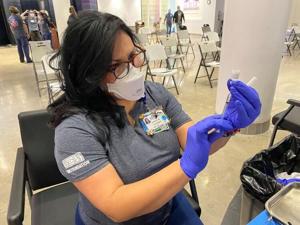A school district in Virginia is under scrutiny following allegations that administrators failed to address harassment concerns involving a male student who identifies as female in the girls’ locker room. This incident is part of a broader debate surrounding the treatment of transgender students in educational settings.
On September 2, 2023, a 14-year-old female student at West Springfield High School reported that while changing in the girls’ locker room, she encountered a male student with facial hair, dressed in tight-fitting pants that revealed his genitalia. According to a complaint filed by the Defense of Freedom Institute (DFI) with the Department of Education’s Office for Civil Rights, this student was allegedly watching girls prepare for physical education class.
The female student raised her concerns with a teacher, who reportedly dismissed the issue, stating there was nothing that could be done about the situation. Her mother attempted to contact school officials multiple times but received no response. Just two days later, a school official suggested the girl could change in a unisex bathroom to avoid the presence of the boy.
The situation escalated when, on September 10, the same male student again entered the girls’ locker room, prompting a female student to take a photo of him. This image was shared with a school resource officer, who informed school administrators about the incident. Despite this, the DFI asserts that administrators did not take action to prevent the boy from entering the girls’ facilities and continued to use male pronouns when discussing him.
While administrators advised the female student to file a Title IX complaint against the male student, they clarified that such a complaint would not result in any restrictions on the boy’s access to the girls’ locker room. Fairfax County Public Schools (FCPS) policy allows students to use bathrooms and locker rooms that align with their gender identity. The policy also states that students uncomfortable changing with someone of the opposite sex should be offered a “reasonable, non-stigmatizing alternative.”
The DFI argues that the male student’s behavior constituted “unwelcome conduct” as the female students objected to it and promptly reported it to school staff. The complaint further states that the school’s actions, influenced by its adherence to policies favoring transgender students, effectively ignored the rights and concerns of the girls involved.
The DFI has called on the Department of Education to notify FCPS that failing to comply with federal regulations regarding sex-segregated facilities could jeopardize the district’s federal funding.
This complaint arises amid ongoing legal disputes between FCPS, Arlington Public Schools, and the Trump Administration over policies allowing transgender students to use facilities corresponding with their gender identity. Additionally, Loudoun County Public Schools is facing its own federal lawsuit concerning similar issues.
The allegations against FCPS highlight the complexities and challenges school districts face in balancing the rights of transgender students with those of their peers. The situation continues to unfold as parents and advocacy groups call for clearer guidelines and protections for all students in school environments.
































































